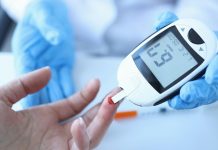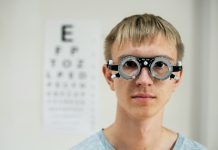
Detecting diabetes could become as simple as speaking into your smartphone, thanks to a pioneering study from Klick Labs.
This groundbreaking research combines voice technology with artificial intelligence, offering a promising avenue for diabetes detection.
Published in the Mayo Clinic Proceedings: Digital Health, the study showcases how a few seconds of spoken words and basic health data can train an AI model to distinguish between individuals with and without type 2 diabetes.
The results are impressive, with the model achieving an accuracy rate of 89% for women and 86% for men.
Voice as a Diagnostic Tool
The study conducted by Klick Labs involved 267 participants, including those diagnosed as non-diabetic and type 2 diabetic.
Over a two-week period, these individuals recorded a specific phrase using their smartphones six times a day.
This resulted in more than 18,000 voice recordings.
Scientists then focused on analyzing 14 acoustic features within these recordings to identify differences between non-diabetic and type 2 diabetic individuals.
Significant Vocal Variations
The findings revealed remarkable vocal variations associated with type 2 diabetes.
These differences extended beyond what the human ear could perceive, such as changes in pitch and intensity.
Through signal processing techniques, researchers successfully detected subtle vocal changes caused by type 2 diabetes.
Intriguingly, these vocal alterations exhibited gender-specific patterns, with variations unique to males and females, as explained by Jaycee Kaufman, the first author of the study and a research scientist at Klick Labs.
Addressing Diabetes Detection Challenges
Currently, diabetes detection methods can be time-consuming, require physical travel, and incur significant costs. In contrast, voice technology has the potential to eliminate these barriers.
By leveraging a person’s voice, health professionals can potentially screen for diabetes more efficiently and accessibly.
This is a significant development, considering that nearly 240 million adults worldwide live with undiagnosed diabetes, and around 90% of diabetic cases are type 2 diabetes, according to the International Diabetes Federation.
Future Potential and Expanding Research
Yan Fossat, vice president of Klick Labs and principal investigator of the study, highlighted the potential of this non-invasive and accessible approach to screen vast numbers of people for type 2 diabetes.
The research suggests that voice technology could revolutionize healthcare practices by serving as an affordable and digital screening tool.
Looking ahead, Klick Labs plans to replicate the study’s success and extend their research into other areas.
This includes exploring voice-based diagnostics for conditions like prediabetes, women’s health, and hypertension. The potential applications of voice technology in healthcare are vast and promising.
The fusion of voice technology and artificial intelligence offers a transformative approach to diabetes detection.
This innovative method, as demonstrated by Klick Labs, has the potential to simplify and enhance screening for type 2 diabetes.
By leveraging the power of our voices, we may soon have a convenient and accessible tool to identify this prevalent condition and potentially improve early intervention and patient outcomes.
If you care about diabetes, please read studies about Vitamin D and type 2 diabetes, and what you need to know about avocado and type 2 diabetes.
For more information about diabetes, please see recent studies about how to eat to prevent type 2 diabetes and 5 vitamins that may prevent complications in diabetes.
The research findings can be found in Mayo Clinic Proceedings: Digital Health.
Follow us on Twitter for more articles about this topic.
Copyright © 2023 Knowridge Science Report. All rights reserved.



